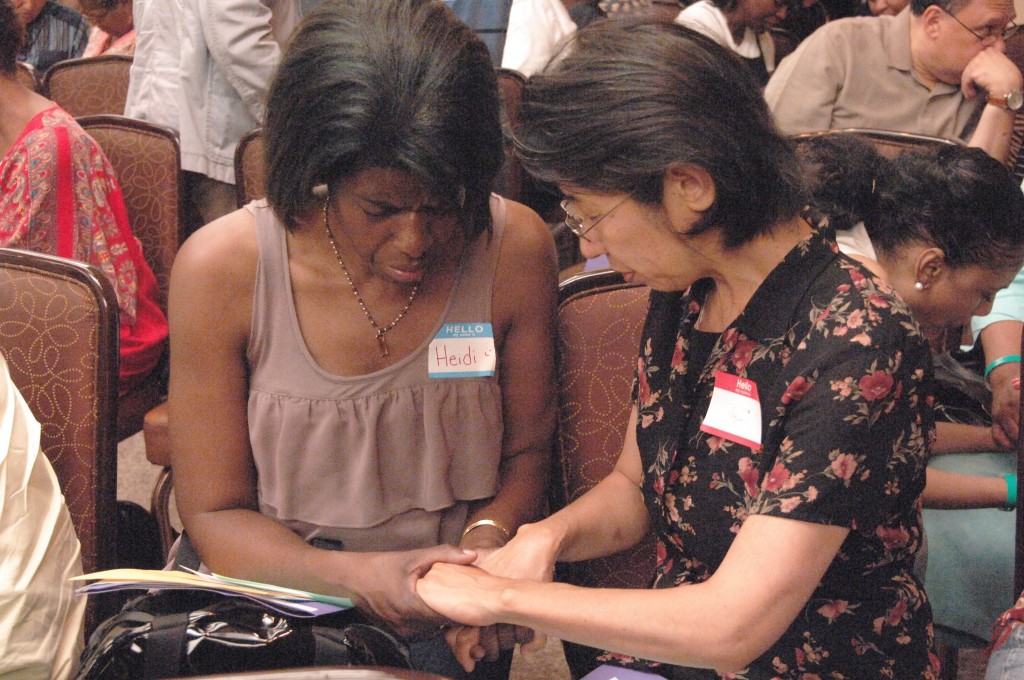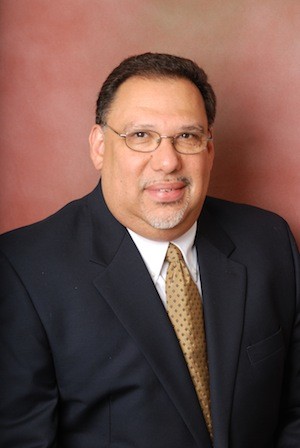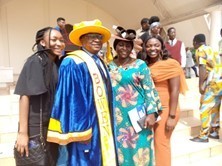Teaching New Testament at New York Theological Seminary: On the Night After Charleston
Teaching New Testament at New York Theological Seminary:
On the Night After Charleston
Dr. Efrain Agosto
June 22, 2015

For the Official Statement from New York Theological Seminary, please click HERE

We gathered for our regular summer session class on a Thursday evening at New York Theological Seminary, June 18, the night after the horrific shootings in an AME Church in Charleston, South Carolina. Three of my six students for the class were out sick; no doubt saddened by the tragedy of the night before, perhaps even so adversely affected that they had a kind of visceral, physical reaction that affected their health. Six of the nine African Americans murdered Wednesday night in Charleston were women, leaders of church and community. My summer class, as diverse as any at New York Theological Seminary, includes three African American women (all three absent on Thursday night), two Latino men and a Korean woman. These are persons who love their churches and work tirelessly for them, just like the folks in Charleston. Indeed, many NYTS students are in Seminary to prepare even better for their ongoing work for their beloved churches.
The three students that did attend class Thursday night prayed with me for all those affected by what happened in Charleston the night before, which means all of us; the whole country has been deeply stricken by such horror and hate.
Then we addressed the themes of the evening class, the final passages of the New Testament Letter of James. Our course is entitled, “Studies in James and 1 Peter: The Ethics of Earliest Christianity.” We have completed our second week of classes (out of three) and it took till Thursday to finish James! One passage of study that night included the paragraph in which the author denounces rich merchants for their focus on making money: “Come now, you who say, ‘Today or tomorrow we will go to such and such a town and spend a year there, doing business and making money’” (James 4:13 NRSV). The author goes on to challenge such unbridled economic focus for the lack of attention to God and God’s will on the matter. Shouldn’t they say, James insists, “If the Lord wishes, we will live and do this or that” (v.15)? Otherwise, their efforts at merely “making money” constitutes boasting and arrogance, indeed “evil” (v.16). And then, this early Christian pastor writing to his flock dispersed around the Roman Empire (James 1:1) posits this proverbial adage, applied to the economic arrogance of too many people in that Empire: “Anyone, then, who knows the right thing to do and fails to do it, commits sin” (v.17).
In the aftermath of the Charleston massacre, I was struck Thursday night, and my class joined me in some intense moments of reflection, that from Newtown to Charleston, America has failed. We have failed to heed the call of those slaughtered children and teachers in Newtown, Connecticut’s Sandy Hook Elementary School in December 2012 to pass national legislation that would help control who can buy a gun anywhere in this country. Similarly, this child of racism in Charlestown, South Carolina, just 21 years old (the troubled shooter in Newton was 19), should never have had access to a gun, and no so-called constitutional right for anyone to bear arms should stop our legislators in Washington from doing so much more than they have done. At the very least, a national registry for gun ownership, with complete mental health checks, is needed now! Otherwise, we who know “the right thing to do” are failing to do it and commit heinous sin, just like the young men of Newtown and Charleston. I am sure the economics of the matter, along with this nation’s original sin of racism, hold people back, just like the ancient passage from the Letter of James invokes economic arrogance and exploitation. After all, the U.S. gun lobby, represented by the all too powerful National Rifle Association, is not really about defending “second amendment rights.” They are about “big business” because the manufacturing, sale and ownership of all kinds of guns, including military style assault weapons, is big business in this country, and the “business of America is business,” big business. Not taking into account the pain and anguish of Newtown and Charleston, and passing stricter gun control laws on a national level, is emblematic of our love of “doing business and making money” at all costs.
In the midst of such pain, there was some good news last week, which also seeped into our conversation on this ancient biblical text on Thursday night. Pope Francis issued an encyclical on the environment, calling on the world’s governments to pay closer attention to the need for climate legislation and economic considerations to ensure the well being of the earth and the earth’s people, especially the poor. I have not read the document in its entirety but these opening lines are telling: “We have come to see ourselves as her [the earth’s] lords and masters, entitled to plunder her at will. The violence present in our hearts, wounded by sin, is also reflected in the symptoms of sickness evident in the soil, in the water, in the air and in all forms of life. This is why the earth herself, burdened and laid waste, is among the most abandoned and maltreated of our poor; she ‘groans in travail’ (Rom 8:22).” Given such “violence” and “sin,” the Pope challenges global governments and economies, especially the richest countries and corporations, to consider the damage they do, especially to the poor, with unchecked economic growth at the cost of the earth’s health.
Last Thursday evening, our class also studied perhaps the most well known passage in James, in which the author rails against “rich people,” who need to repent of their ways, whose focus on accumulating riches belies the fact that such treasures will one day rot, rust and burn (James 5:1-3). Exploitation of the labor force on behalf of rich landowners, who “have lived on the earth in luxury and in pleasure” and who “have fattened [their] hearts in a day of slaughter” demands justice from God, writes our New Testament author (5:4-5). The murder of the earth and its peoples cannot continue (v.6). This connection between unbridled love of money and the exploitation of the earth and the poor is precisely where the Pope’s encyclical stakes a claim for action on behalf of environmental policies that do justice and plan for a secure world for all.
Upon reflection about this class experience on the evening after Charleston, I was thankful that mere exegetical study of a few ancient passages of scripture led to such rich, thoughtful and impassioned engagement in a seminary classroom. The news of the week, both hopeful and horrific (not even mentioning the other startling report: the ironic and sad twist of a white woman pretending to be black in order to get ahead in her quest to do justice; we needed her skill and effort, but as the white woman that she is, not with her lies), drove us at NYTS this busy summer week to read the Bible with our newspapers, as Karl Barth famously taught us to do.
To read the Wabash Center Blogs version, please click HERE.

